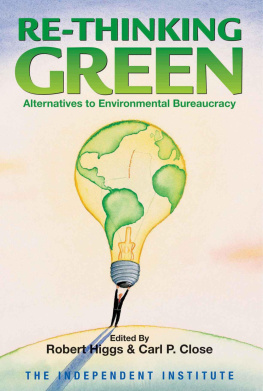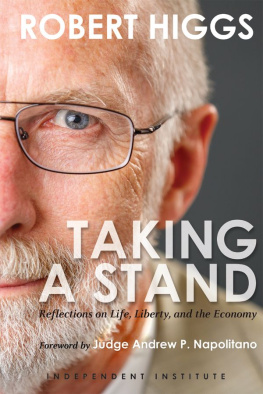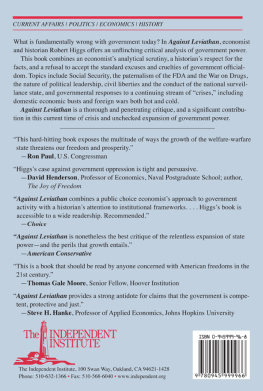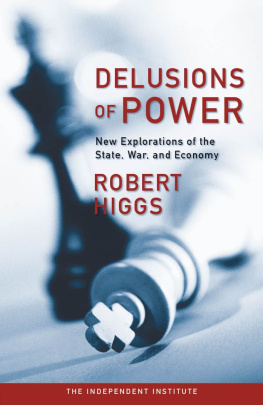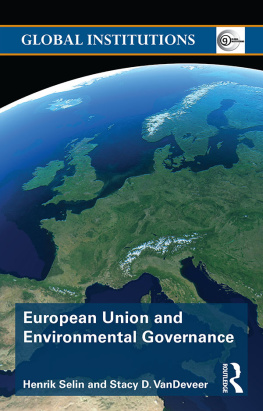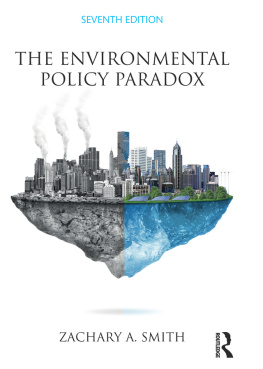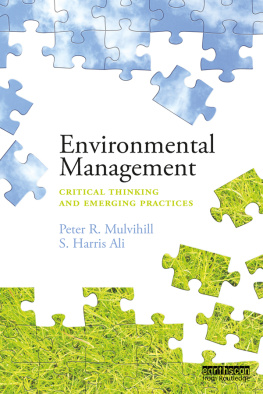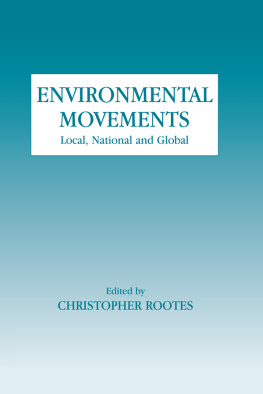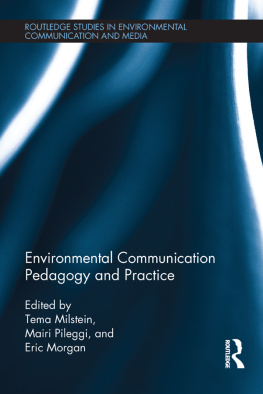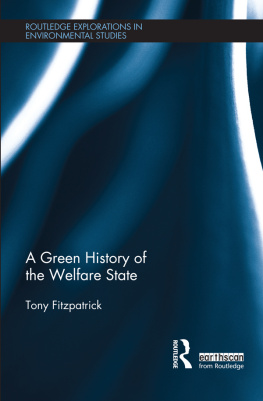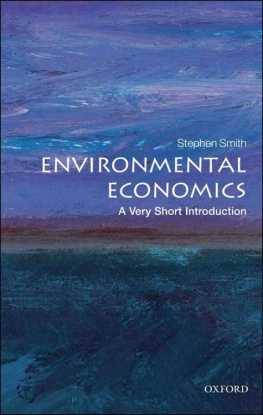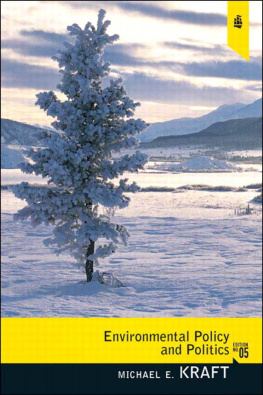Re-Thinking Green
Alternatives to Environmental Bureaucracy
Edited by
Robert Higgs and Carl P. Close

Copyright 2005 The Independent Institute
All rights reserved. No part of this book may be reproduced or transmitted in any form by electronic or mechanical means now known or to be invented, including photocopying, recording, or information storage and retrieval systems, without permission in writing from the publisher, except by a reviewer who may quote brief passages in a review. Nothing herein should be construed as necessarily reflecting the views of the Institute or as an attempt to aid or hinder the passage of any bill before Congress.
The Independent Institute
100 Swan Way, Oakland, CA 94621-1428
Telephone: 510-632-1366 Fax: 510-568-6040
Email:
Website: www.independent.org
Library of Congress Cataloging-in-Publication Data
Re-Thinking Green: Alternatives to Environmental Bureaucracy / edited by Robert Higgs and Carl P. Close.
p. cm.
Includes bibliographical references and index.
ISBN 0-945999-97-6 (pbk. : alk. paper)
1. Environmentalism. 2. Green movement. 3. Environmental policy.
4. Environmental impact analysis. I. Title: Rethinking green. II. Higgs, Robert.
III. Close, Carl P.
GE195.R4 2004
333.72--dc22
2004029532
10 9 8 7 6 5 4 3 2 1
Contents
Chapter 1 Introduction
Robert Higgs and Carl P. Close
Chapter 2 Prophecy de Novo: The Nearly Self-Fulfilling Doomsday Forecast
Craig S. Marxsen
Chapter 3 Doomsday Every Day: Sustainable Economics, Sustainable Tyranny
Jacqueline R. Kasun
Chapter 4 Population Growth: Disaster or Blessing?
Peter T. Bauer
Chapter 5 After Kyoto: A Global Scramble for Advantage
Bruce Yandle
Chapter 6 Global Warming and Its Dangers
J. R. Clark and Dwight R. Lee
Chapter 7 The Endangered Species Act: Who's Saving What?
Randy T. Simmons
Chapter 8 Fixing the Endangered Species Act
Randy T. Simmons
Chapter 9 Environmental Colonialism: Saving Africa from Africans
Robert H. Nelson
Chapter 10 The Ivory Bandwagon: International Transmission of Interest-Group Politics
William H. Kaempfer and Anton D. Lowenberg
Chapter 11 Free Riders and Collective Action Revisited
Richard L. Stroup
Chapter 12 Entrepreneurship and Coastal Resource Management
James R. Rinehart and Jeffrey J. Pompe
Chapter 13 To Drill or Not to Drill: Let the Environmentalists Decide
Dwight R. Lee
Chapter 14 Externalities, Conflict, and Offshore Lands: Resolution through the Institutions of Private Property
John Brtland
Chapter 15 Is Urban Planning Creeping Socialism?
Randal OToole
Chapter 16 Eco-Industrial Parks: The Case for Private Planning
Pierre Desrochers
Chapter 17 Regulation by Litigation: Diesel-Engine Emission Control
Bruce Yandle and Andrew P. Morriss
Chapter 18 The Environmental Propaganda Agency
Craig S. Marxsen
Chapter 19 Market-Based Environmentalism and the Free Market: They're Not the Same
Roy E. Cordato
Chapter 20 Market-Based Environmentalism and the Free Market: Substitutes or Complements?
Peter J. Hill
Chapter 21 Does Existence Value Exist? Environmental Economics Encroaches on Religion
Robert H. Nelson
Chapter 22 Autonomy and Automobility
Loren E. Lomasky
Introduction
ROBERT HIGGS AND CARL P. CLOSE
The title of this book prompts some obvious questions: What exactly do we mean by environmental bureaucracy, and why are we asking readers to rethink it? What principles inform this books critique of current environmental policies, and what evidence suggests that these principles would provide a better guide to environmental policy?
The answers to these questions will emerge as the following pages are read, pondered, and debated, but asking readers to hold their questions until they discover the answers for themselves would be more than coyly evasiveit would forfeit an opportunity to explain why more and more analysts and observers are seeking alternatives to the current approach to environmental protection. The story of that search begins with a brief look at the rise in environmental regulation and how it came to exemplify the dreariness of politics as usual.
ENVIRONMENTAL AWAKENING AND POLICY REALISM
Contrary to popular mythology, the environmental awareness that came of age publicly in the United States with the first Earth Day in 1970 did not spring fully formed from the brow of the Woodstock generation or even from Rachel Carsons Silent Spring eight years earlier. Rather, it was the culmination of earlier efforts by John Muir, Gifford Pinchot, Theodore Roosevelt, Aldo Leopold, and others. These thinkers and policymakers legacy is hardly monolithic. Many writers today distinguish, for example, between the conservationists and the environmentalists among these seminal influences, thus revealing inconsistencies in the goals of environmental policy (Chase 2001).
Nor are historians interpretations of these legacies uniform. Samuel P. Hays (1959) has argued that the conservationists of the late nineteenth and early twentieth centuries were more concerned with promoting wise environmental stewardship for human purposes than is suggested by the rhetoric of preserving wilderness for its own sake. More recently, however, a case has been made that the early conservationists were not the efficiency-driven, public-interest technocrats that Hays suggested and that their environmental evangelism was more spiritual than scientific (Rubin 2000). The point here, however, is not to trace the history of environmental thought, but merely to indicate that environmental history is a tangled thicket.
Similarly, significant differences exist in how best to interpret the history of environmental regulation. One source of such differences (one not touched on in this volume) is the inherent complexity of the scientific aspects of numerous environmental issues. Another source, which may often be more difficult to resolve, is the problem of understanding how particular regulations operate in the real world. The last four words are emphasized because for too long the goals and efficacy of particular regulations were taken at face value. The goals of a regulation, to the extent that they are influenced by electoral politics, were often assumed to coincide with the public interest, and seldom were proposed regulations examined sufficiently to establish whether they would advance a reasonable conception of this goal in the presence of real-world political and institutional constraints.
Another type of awakening has also taken place in recent decades. Public choice, a young hybrid discipline of economics and political science, aims more or less explicitly to remedy the deficiencies that result from taking public-policy proposals at face value by prescribing a strong dose of policy realism. Rather than ask, idealistically, What would we like governments to do? public choice asks, realistically, What are governments likely to do, given the incentives and constraints of politicians, voters, bureaucrats, and special-interest groups? Like the consumer who discovers that sausages are less appetizing after he or she sees how they are made, students of public choice learn that political processeseven revered democratic onesoften result in outcomes far different from those described in high school civics classes.
The dethroning of idealized conceptions of political institutions has not been solely a destructive affair, however. Public choice has contributed a number of positive insights that can promote the improvement of our institutions. It recognizes, for example, that voters typically display rational ignorance in public-policy matters, which means that they often view the opportunity costs of becoming well informed about particular political candidates and proposed changes in the law as greater than the perceived benefits of possessing such information. Rational ignorance thus contributes both to voter apathy and to politicians tendency to pose as doing something to fix a perceived problem rather than to deal with the problems root causes. Recognizing the risks of rational ignorance is the first step toward reforming our institutions.
Next page
